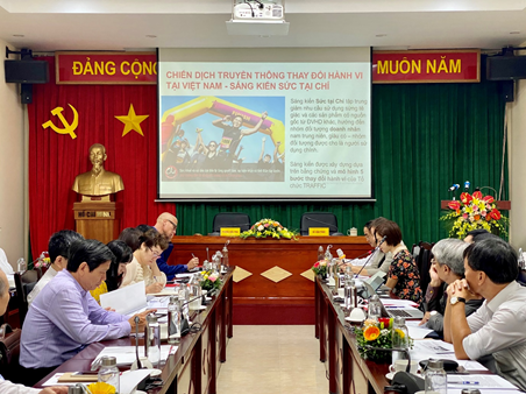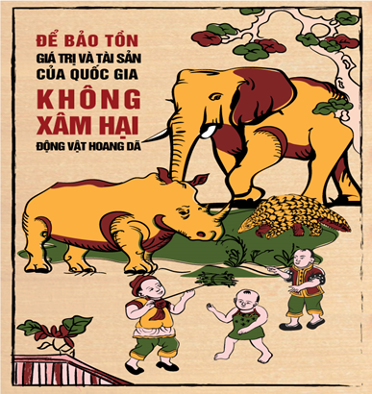USAID Partners with Top-Level Vietnamese Government Agencies to Harmonize Legal Framework on Wildlife Conservation
With the Vietnamese government’s ongoing revision of its laws on biodiversity, specifically the Environment Law and Law on Biodiversity, these definitive references are timely. They will further boost counter wildlife trafficking-focused policymaking as well as wildlife demand reduction efforts in Vietnam, which remains both a destination and transit hub for wildlife products.
Last year, following the issuance of Directive No. 29 by Vietnamese Prime Minister Nguyễn Xuân Phúc, banning wildlife trade and consumption to reduce sources of zoonotic diseases that can cause pandemics, USAID Wildlife Asia worked with the National Assembly (NA) and CCPE to strengthen the directive’s implementation and coordination by various government agencies.
A series of small meetings by the National Assembly in August 2020 was held, which produced the Handbook on Strengthening Wildlife Conservation, an internal document that was circulated to various government ministries and offices in November 2020. This Handbook identifies actions that government ministries such as the Ministry of Public Security, Ministry of Information and Communication and media agencies – Vietnam Television and Voice of Vietnam – need to take to protect wildlife and reduce consumer demand. The Handbook also stresses the importance of raising awareness about laws and regulations as well as changing people’s attitudes and behaviors regarding wildlife consumption. This document was a follow-up to the Handbook on Wildlife Conservation that was the outcome of the High-Level Dialogue that the National Assembly of Vietnam held in 2019 to discuss wildlife-related issues, including demand reduction, law enforcement, and gaps in Vietnam’s wildlife protection policies.
In 2020, the CCPE also produced the Journal on Challenges in Protecting Endangered, Precious and Rare Wildlife Species to use for a series of workshops on how to make government’s wildlife demand reduction efforts more effective. The journal serves as a reference for CCPE officials, providing information on the state of wildlife in Vietnam and the global illegal wildlife trade. In November 2020, USAID Wildlife Asia engaged CCPE leaders and senior government communicators through a High-Level Workshop exploring innovative communication tools to reduce the consumption of wildlife within government networks. This is an important part of wildlife demand reduction in Vietnam as a 2018 USAID-supported study “Consumer Demand for Rhino, Elephant, and Pangolin Products in Vietnam” identified government officials, together with professional businessmen and celebrities, as among the consumers of rhino horn as a status symbol.



